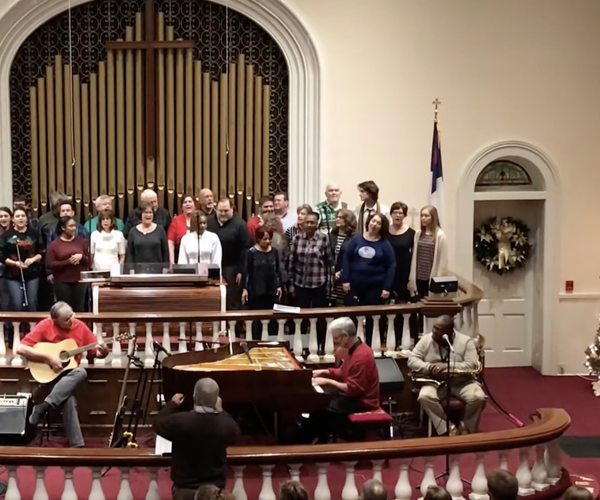Our lives are molded by the long term commitments that we make. This is true with the commitments we make to one’s family, to one’s community and nation, to one’s profession, to one’s faith and to one’s friends. These commitments become the standards by which we judge our decisions; they become the guide posts on our journey through life.
You are who you are due to commitments you made in the past. As you keep your commitments or fail to be faithful to them, you are determining your future. Eugene Peterson, a retired Presbyterian minister, described these commitments, as a “long obedience in the same direction.” He said this is how we survive in “an instant world.” If we don’t have these commitments we are pulled and pushed by every whim and fad of the moment. We have nothing to stand on or to stand for.
Nowhere is this truer then with our families. One great blessing of the institute of marriage is the long standing commitment two people make to each other. Many will say that in a wedding service when asked the vow, one answers by saying “I do.’ But in most services the answer is in fact, “I will.” The strength of the relationship of husband and wife is the faithfulness to the commitment to honor and keep each other, without regard to what happens. These times are often described in the vows as “for better or worse, for richer or poorer, in sickness and in heath.” For most married couples there will be times that will fit all these, but the key is the “long obedience” to the commitment “in the same direction.”
This same need for steadfastness is found in the parent-child relationship. In many faith traditions through either baptism or dedication, the parents make a long standing commitment to raise the child in a loving and caring way. In the Ten Commandments, one is to honor one’s father and mother. Family is created by a commitment for the long term. Someone has described it this way, “Home is where they have to take you in, whether they want to or not.”
One thing I like about belonging to a Civic Club is that we get to say the Pledge of Allegiance to the flag each week, much like the way we started the day when we were in school as children. It reminds me of our nation’s commitment for liberty and justice for all. And because of the depth of freedom that represents, I don’t hesitate to pledge my allegiance. Allegiance to a nation means not only to be law abiding but to be involved for the common good.
Most of us were blessed to be born a citizen of this great nation. But is it easy to understand why others want to be a part of it as well. But whether by birth or decision, our obligation is the same. I am amazed about how many do not even bother to vote, or even go to the trouble to be informed about the issues facing our community, state or nation. Our commitment should also include a willingness to speak out on challenges facing our community or nation. Silence can be very destructive.
The need for faithful commitment is at the heart of a strong faith community. It is the difference between affiliation and dedication to the faith we profess. The strength of any congregation is the faith commitments of its members.
This same need for a long term commitment is found in most professions and lines of work. When we turn to a medical professional or a person in the financial world or an attorney, we expect them to live by the highest standards of their profession. Many years ago I made certain vows of commitment for my ordination. Those I served in ministry had a right to expect me to be faithful to those vows.
Recently many of us were shocked when a leading TV news anchor admitted to creating a part of the story he reported. When I read or listen to the news, I trust the reporter to be honest with no hidden agenda. I am seeking the news not propaganda.
We should rightly expect this same level of commitment from those elected to public office. We have a right to expect transparency so that we can understand why certain decisions are being made. The oath of office, for whatever position, becomes a commitment for the long journey of the term of office.
Society at all levels is built on mutual trust. The way we make sure is first make sure we can live by the commitments we make. It is best said, “Let our word be our bond.” We also have right to demand the same of all that we deal with.
Hopefully life is a long journey. Let us make sure we choose to make the commitments that will make us better persons. But also to live by the commitments that will make our families, our community, our faith communities, and our professions strong as well.
B. Wiley Stephens is a retired United Methodist Minister and author who now resides in Covington.





